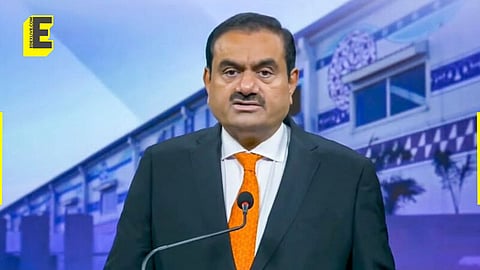
- News
- Campus
- Exam
- Podcast
- Web Stories
- Do You Know
- Path Finders - UG Programs
- Videos
- Book Review

A recent Delhi court order has restrained nine journalists, activists, and entities from publishing or circulating "unverified, unsubstantiated, and ex facie defamatory" content about Adani Enterprises Limited (AEL). The order mandates the removal of such content within five days, prompting concerns from the Editors Guild of India, which described the development as "troubling," reported The New Indian Express.
Corporate given the power
The Editors Guild expressed "deep concern" over the court's directive, which allows AEL to identify and forward URLs and links of content it deems defamatory to intermediaries or government agencies. These entities are then required to remove the flagged content within 36 hours, a mechanism the Guild finds "disturbing" as it grants significant power to a private corporation.
Government notices to social media platforms
The Ministry of Information and Broadcasting has issued notices to platforms like YouTube and Instagram, ordering the removal of over 138 links and 83 posts related to AEL. The Guild termed this executive action "equally troubling," arguing that it effectively allows a private corporation to determine what constitutes defamatory content and initiate takedowns.
Threat to press freedom
The Editors Guild warned that the combination of corporate influence and ministerial action risks creating a system of censorship. The statement emphasised that such powers threaten the public's right to know, stating, "A free and fearless press is indispensable to democracy. Any system that allows private interests to unilaterally silence critical or uncomfortable voices poses a serious risk."
Impact on independent content creators
Satirist Akash Banerjee, who operates the YouTube channel 'Deshbhakt,' revealed that he and other independent YouTubers were given just 36 hours to remove over 200 pieces of content without any opportunity to contest the order. This has raised alarms about the lack of due process for content creators facing such directives.
